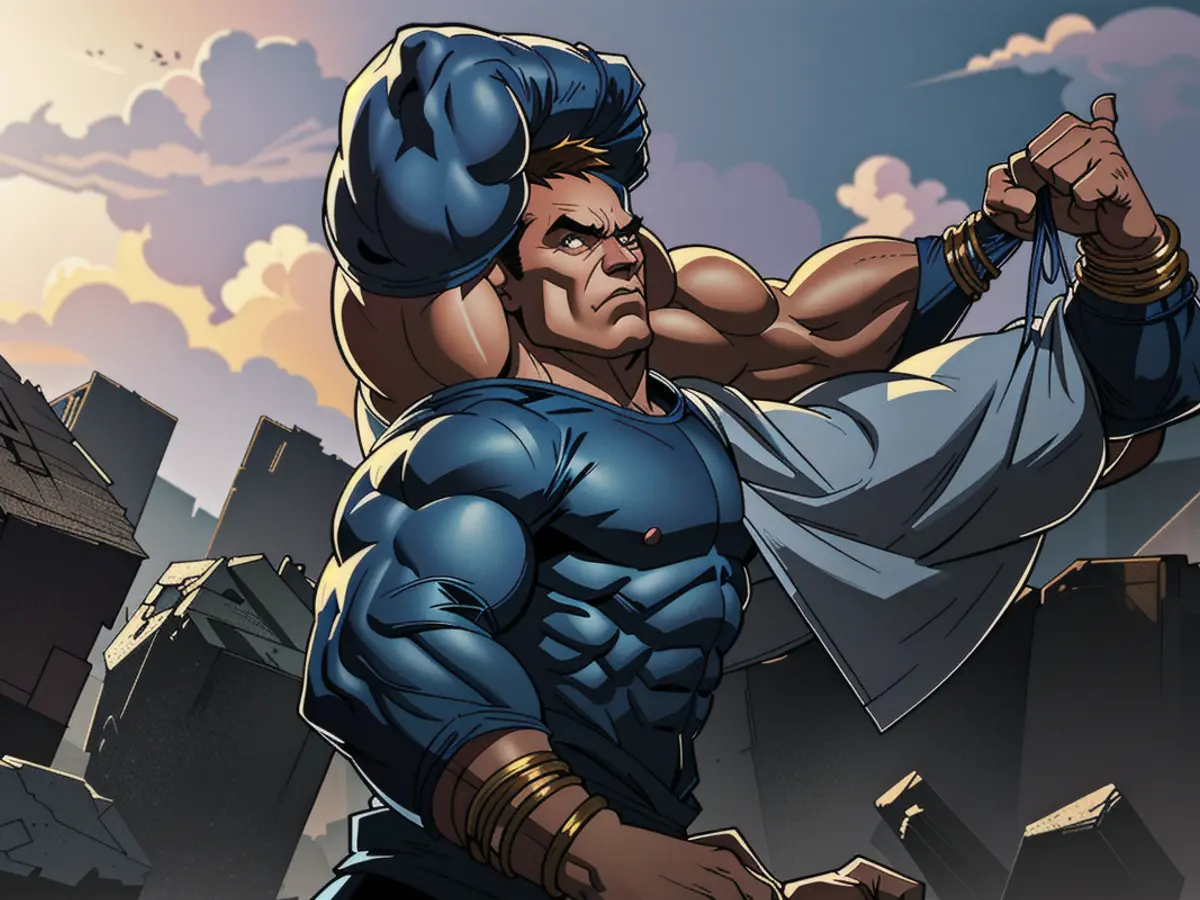"Endgame Continuation of Avengers celebration that refuses to slow down"
Hail to the Kings: That's the deserved kudos for Marvel Studios back in the day when they knew how to drop a big event picture like no other. Kicking off the madness with the original Avengers in 2012, each subsequent movie aimed for bigger explosions, more set pieces, and more emotional payoffs. The goal was clear: be bigger and better than the last, always leaving audiences with a smile on their faces.
This whole strategy boils down to Atomic Cine-Wow Syndrome, the burning obsession within Marvel to outdo itself, seen most notably in Avengers: Endgame. Released on April 26, 2019, this film was the cherry on top of the Infinity Saga that began with Iron Man in 2008. With Endgame, Marvel was setting the stage for the grand finale, a movie that would not only wrap up Thanos' genocidal plot but also serve as a swan song for the original Avengers. If every Marvel film before it was a can't-miss event, Endgame was that but on steroids.
Marvel was proud of Endgame's importance, so much so that it re-released the movie solely to make more bank than Avatar. While the marketing didn't shy away from exploiting the nostalgia, the actual plot details were strangely withheld. Perhaps they worried fans would figure out the time travel mechanics months before the movie dropped.
Maybe Marvel could've used some extra breathing room when laying the foundation for Endgame. The movie has its heart in the right place by taking its time sketching out the aftermath of the original Avengers' L, but it falls short in several character arcs, like Hawkeye and Thor's post-Snap breakdowns. And there's the whole Natasha dilemma: her emotional impact in the third act is impressive, but her absence in the closing moments leaves a weird aftertaste.
So, dear reader, what did you think of the character turns in Endgame? Were you emotionally invested in Hulk and Banner finally coming to terms with their issues? Were you moved by Thor reclaiming Mjolnir with a warrior's cry? Sound off in the comments below!
Endgame might be more popularly known as the movie that made cinematic history by grossing $2.799 billion worldwide. But two months after its release, we had another showstopper: Kevin Feige took the stage at San Diego Comic-Con to tease the future of Marvel. Eternals, Shang-Chi, Blade, stories on Disney+ – if you're keeping score, that's a lot of new content on the way.
But then, a little thing known as the COVID-19 pandemic happened. The whole world came to a standstill, and Marvel Studios was forced to hit pause for the first time. Once things settled down, Marvel was back in business with shows and movies starting up again. But as much as Phase Four has delivered enjoyable works like Ms. Marvel and X-Men '97, it's also faced its fair share of criticism: uneven phases, problematic VFX crunches, a lack of understanding on how TV works, and a recent tendency to shuffle release dates.
All these challenges have left cracks in Marvel's armor. It's like Endgame was the seventh seal that managed to hold things together, but now that it's gone, things are getting chaotic. But don't worry, Marvel will find its way, seeing as it's part of one of the biggest companies on the planet.
So, here's a fun fact: it's unlikely we'll see another movie of such monumental scale and importance as Avengers: Endgame. Marvel's glory days are behind it, and maybe it's time for new players to take the stage.
Want more io9 news? Check out the latest on Marvel, Star Wars, Star Trek, the DC Universe, and all things Doctor Who.
Enrichment Insights:
- Quality Perception and Storytelling: After Endgame, fans began to question the quality and emotional depth of subsequent Marvel movies. Critics pointed towards reduced emotional depth, less impressive action sequences, and lower quality CGI.
- Superhero Fatigue and Repetition: The rapid increase in Marvel content led to feelings of superhero fatigue among fans. Some viewers felt that the films were following a formulaic structure and lacked the unique qualities that early films exhibited.
- Interconnectedness and Timeline Complexity: The interconnected nature of the MCU became increasingly complex, making it harder for viewers to keep track of the overall narrative. This complexity, combined with ambiguities in the post-Endgame timeline, added to the challenge.
- Absence of Central Characters: The departure of iconic characters like Iron Man and Captain America left a significant void, making it difficult for new characters to match their charisma and depth.
- Balancing Inclusivity and Organic Storytelling: Some fans felt that Marvel's efforts to increase diversity and inclusivity came across as forced, particularly in female-led films. This perception affected the perceived appeal of these new characters and stories.
- Maintaining the Fun and Adventure Spirit: Fans and critics began to evaluate new releases based on an unrealistic expectation of matching the success of Endgame, forgetting that the primary goal of superhero films is to provide fun and adventure.
- Production Changes and Timeline Management: Marvel faced challenges in managing its expanded production slate, including issues with continuity and timeline management. The ongoing addition of new projects complicated the narrative flow, making it difficult for casual audiences to engage.
- The sheer scale and importance of Avengers: Endgame, as marked by its impressive box office earnings, set a high standard for future Marvel movies, one that might prove hard to meet.
- Despite the emotional investment in the character arcs of Hulk and Banner, Thor's return to his warrior status, and Natasha's impactful third act, some fans found fault in the portrayals of Hawkeye and Thor's post-Snap breakdowns, and the Natasha dilemma left an unsettling impression.
- As Marvel Studios pursued a strategy of continuous expansion, with projects like Eternals, Shang-Chi, Blade, and content on Disney+ on the horizon, the COVID-19 pandemic forced a pause, followed by the resumption of work with occasional challenges such as uneven phases, problematic VFX crunches, and rescheduling releases.
- When compared to the glory days of Marvel Studios, as epitomized by Avengers: Endgame, the current era, often labeled as Phase Four, has seen a notable shift in quality, with some viewers feeling that new players might be better suited to take the stage.






